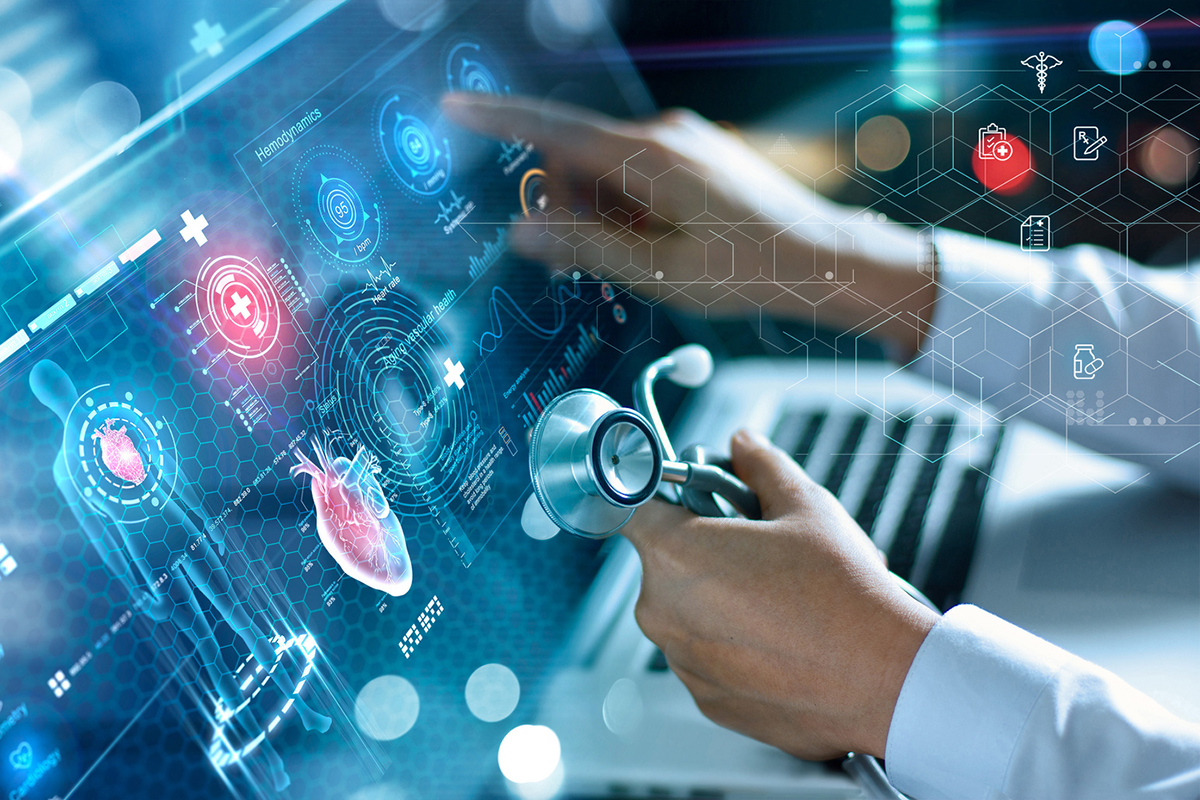Artificial intelligence (AI) has the power to change medicine and public health for the better, according to Harvard T.H. Chan School of Public Health’s Andrew Beam. But there’s also a need to proceed with caution in using this powerful tool, he said.
Beam, assistant professor of epidemiology, is playing a key role in two companion efforts from NEJM Group—publisher of the New England Journal of Medicine—to explore the use of AI in medicine. He is serving, along with Harvard Medical School’s Arjun (Raj) Manrai, as co-deputy editor of NEJM AI, a journal that will publish its first articles this fall. Isaac (Zak) Kohane, founding chair of the Department of Biomedical Informatics in the Blavatnik Institute at Harvard Medical School, will be the editor-in-chief of NEJM AI.
In addition, Beam and Manrai are co-hosting a podcast called NEJM AI Grand Rounds, which features guest experts to explore the deep issues at the intersection of AI, machine learning, and medicine.
The launch of the journal and podcast come at a critical time, said Beam.
“AI used to be hypothetical, in the future. But over the last two years, it has changed,” he said. “AI is here. Everyone knows about ChatGPT. But healthcare is different because patient lives are on the line. The stakes are higher in medical AI than in other kinds of AI. That really spurred me, Zak, and Raj to join this journal — to think seriously about a place to really kick the tires and understand when medical AI can be safely used.”
The first three episodes of the podcast focus on three distinct areas of medicine. The first features Stanford Medicine’s Euan Ashley speaking about AI, genomics, and cardiology. In the second, Harvard Medical School’s Pranav Rajpurkar discusses AI and radiology. The third features Verily’s Lily Peng talking about AI in ophthalmology. Peter Lee, who leads Microsoft Research, speculates on how technologies like ChatGPT will transform medicine in the most recent episode.
“[Ashley and his colleagues are] asking questions such as, ‘Can we get AI to read an echocardiogram in the same way that human cardiologists do?’” Beam said. “They’ve also found that AI can extract signals [from echocardiograms] that people can’t, such as biomarkers indicating anemia.”
Peng spoke about the technology’s potential public health benefits. She noted that her team ran a trial in Thailand — where there aren’t a lot of trained ophthalmologists — that found that AI performed well in screenings for diabetic retinopathy in that population, and could potentially help people get diagnosed and treated more quickly.
Aside from its promise, AI also poses serious challenges when used in medicine, Beam acknowledged.
“There are structural biases baked into systems like ChatGPT because of the data they’re trained on — which is literally the entire Internet, which doesn’t always reflect our best selves,” said Beam. “So we have to make sure that AI doesn’t operationalize those biases on a large scale and hurt populations that are already at the fringes of the healthcare system.”





